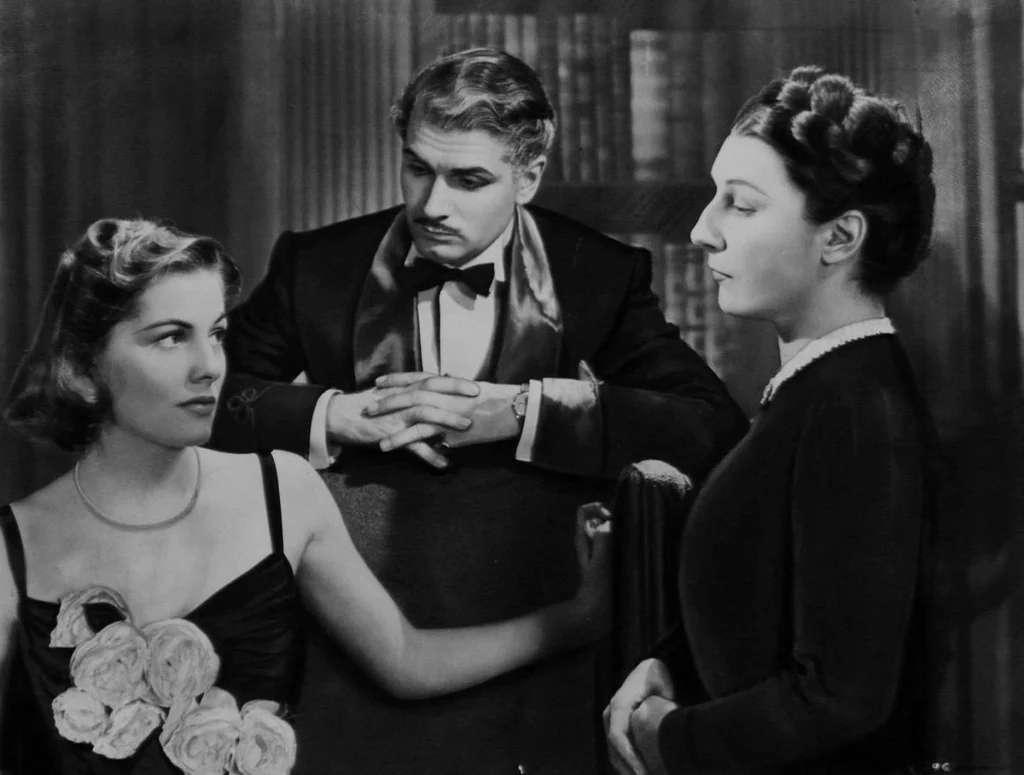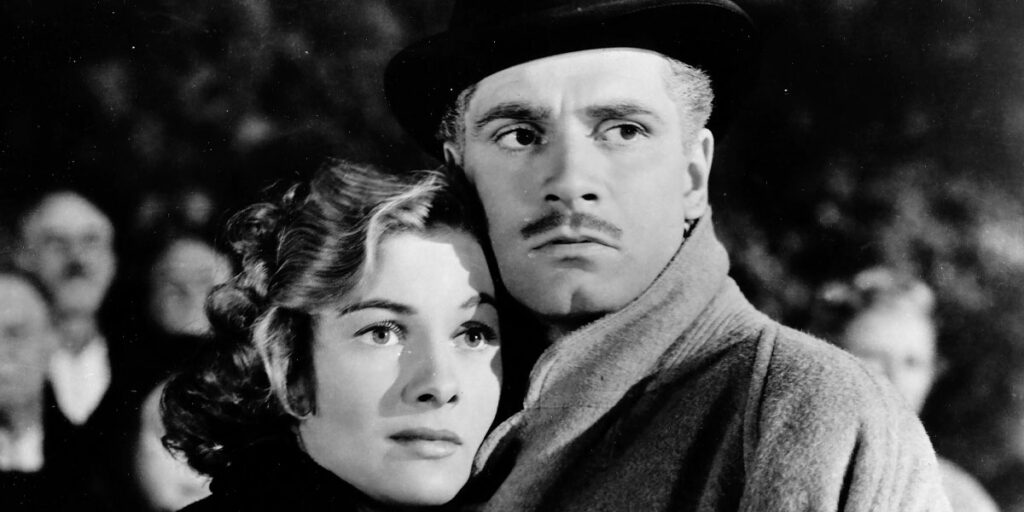Even eighty years after its release, Alfred Hitchcock’s psychodrama Rebecca (1940) is still one of the most haunting films in Hollywood.
Adapted from Daphne du Marier’s 1938 novel of the same name, Rebecca is a gruelling psychodrama about a nameless female protagonist (Joan Fontaine) who, after marrying aristocrat Maxim de Winter (Laurence Olivier) moves to his beloved home Manderley. There, she must try and fill the shoes of his former wife, the deceased Rebecca who lends her name to the title of both the book and film. Released in 1940, Rebecca received high acclaim by winning the 1941 Academy Awards for both Best Picture and Best Cinematography. Now, even after eighty years after its release, Rebecca still represents a masterclass in creating a psychologically thrilling drama.
The plot of Rebecca is only thinly veiled as a romance, as it’s quickly established there is no place for love within the walls of Manderley. Although, its plot does revolve around an abundance of different relationships, and the ever-changing power dynamics within them. When we first meet Maxim, he is extremely condescending to his new bride, who is never named and only ever referred to as Mrs de Winter after their marriage. At dinner he tells her to ‘eat up like a good girl’ and frequently informs her of their plans instead of asking what she would like to do. Their relationship is at the centre of Rebecca but not the only dynamic explored. What is most intriguing is the power Rebecca, although deceased, still has over both the housekeeper Mrs Danvers (Judith Anderson) and her husband Maxim. Her vice-like grip on them both makes it feel as if she were still alive, haunting Mrs de Winter for even attempting to take her place.
Hitchcock’s Rebecca is a cinematic masterclass in creating a deeply oppressive atmosphere in a gothic setting. Cinematographer George Barnes’ use of shadows is evocative, making it feel like there’s something around every corner. Although Manderley is a house of epic proportions, these shadows make Mrs de Winter’s movements feel extremely restricted. The fear the house creates makes it appear as a character within itself, caging Mrs de Winter within its walls. This feeling of suffocation is aided by Franz Waxman and Lou Forbes’ tantalising score that gives Rebecca Hitchcock’s trademark suspense element. Together, these inclusions have created a distressing atmosphere that has inspired so many modern-day gothic features that we are familiar with today.

Rebecca also excels with its brilliant cast of actors who react so excellently to Manderley. As Maxim de Winter, Laurence Olivier plays a deeply troubled man, who even when physically present (which is a rarity), is unable to give himself fully to his new wife. Mrs Danvers, played by Judith Anderson, has since become an iconic villain of the gothic with her unwavering loyalty to Rebecca and her bitter coldness towards Mrs de Winter. Although it is Joan Fontaine, who plays Mrs de Winter, who must carry the picture, as she is the relatable commoner who was plucked from her job as an assistant and placed into aristocracy. Fortunately, Fontaine masters the role, and the viewer can watch on as the once innocent, nameless girl blossoms into a woman of agency.
When looking back on Rebecca and its dark storyline full of twists and turns, its matchmaking of deeply oppressive elements and its memorable performances across the board, it’s not hard to believe that Rebecca is not only one of Hitchcock’s most memorable films, but one of the most memorable films in Hollywood.

